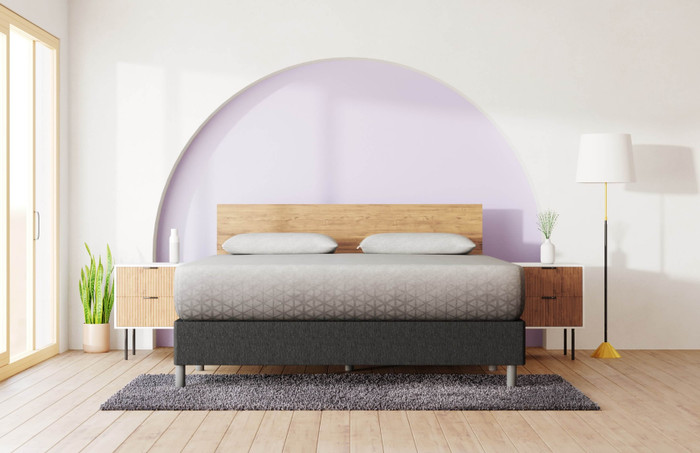Social Media and Sleep
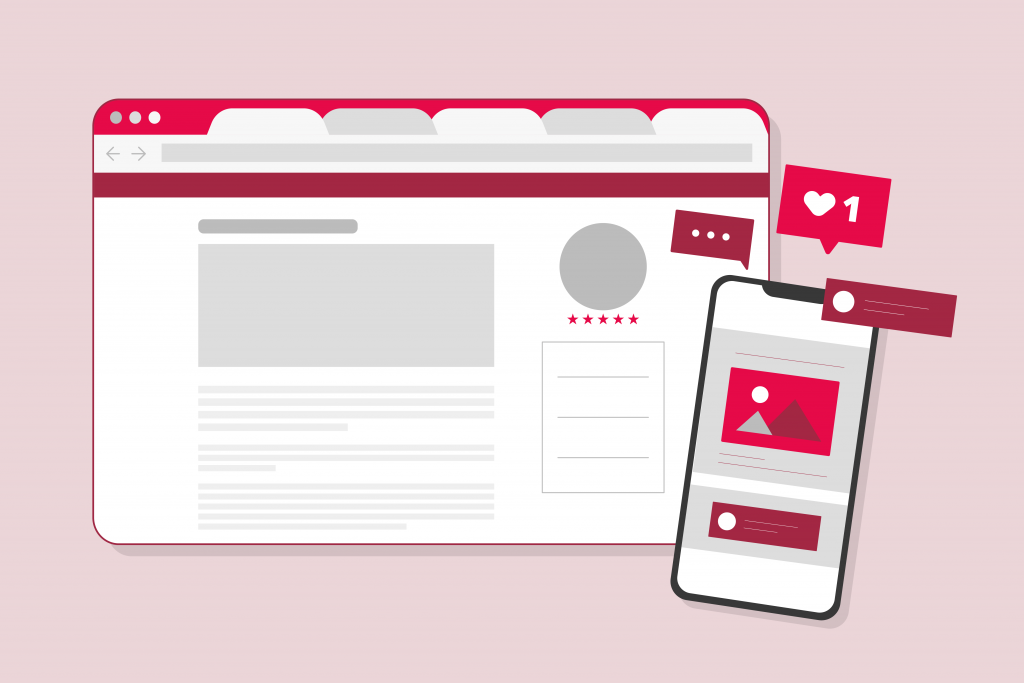
Social media is becoming inescapable in our society. According to a February 2019 poll conducted by the Pew Research Center, 72 percent of American adults use social media. And 90 percent of adults between 18 to 29 are on social media.
Still, there’s a lot of bad press surrounding social media despite its widespread use, and it’s not without reason. One recurring criticism is how social media can negatively affect our sleep.
The technology is relatively new, and the full effects of social media on our lives are still being studied. So far, there is plenty of evidence that too much social media can cause us to struggle to fall asleep.
Studies on How Social Media Affects Sleep
- A 2019 study examined the sleep quality of 13 to 15-year-olds and their social media use. On average, teenagers used social media for one to three hours daily. More social media usage was tied to poorer sleep patterns, such as delayed sleep and wake times and trouble falling back asleep after waking up in the night.
- In 2014, more than 1,700 young adults reported how much time they spent on social media per day and how many weekly visits to social media websites they made. Higher volume and frequency of social media use was tied to increased odds of sleep disturbances.
- A 2016 study examined 197 first-year students who used Twitter in their first quarter at college. The students’ tweets were organized by the researchers according to their emotional state, while the students provided weekly reports on their sleep quality. Frequently tweeting late on a weekday night was tied to lower sleep quality, as were tweets linked to fear. However, tweeting during the evening was related to better sleep quality.
- An Oxford study found that adults who checked social media 30 minutes before bed were more likely to experience sleep disturbances.
Too Much Blue Light Keeps You Awake
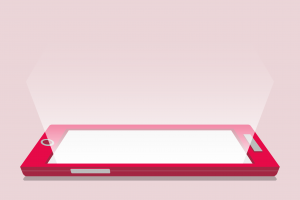 The simplest explanation for how social media can keep you up is too much blue light exposure. Blue wavelengths boost our attention and reaction times, keeping us awake. And many electronics give off these blue wavelengths, causing us to wake up when our bodies should be shutting down for sleep.
The simplest explanation for how social media can keep you up is too much blue light exposure. Blue wavelengths boost our attention and reaction times, keeping us awake. And many electronics give off these blue wavelengths, causing us to wake up when our bodies should be shutting down for sleep.
Any kind of light can suppress the release of melatonin, a hormone that helps us fall asleep. However, blue light is most effective at suppressing melatonin.
For best results, sign off your devices two to three hours before bedtime. If you can’t avoid using electronic devices before bed, consider a pair of glasses that filter out blue light. You can also check if there’s a “Nighttime Mode” that will replace your screen’s blue light with more soothing yellow hues.
Blue light exposure may not be the only factor keeping you up at night. There’s also evidence of a psychological component when it comes to how social media disrupts sleep.
Why Does Social Media Use Feel Good?
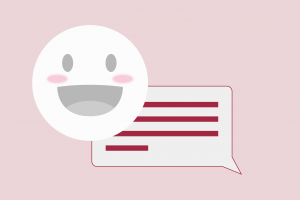 Our brains rely on dopamine, a “feel-good” chemical, to motivate behavior and turn it into a habit. It’s released after a scrumptious meal, a thorough workout, and after we socialize successfully. Dopamine helps to reinforce specific behavior patterns.
Our brains rely on dopamine, a “feel-good” chemical, to motivate behavior and turn it into a habit. It’s released after a scrumptious meal, a thorough workout, and after we socialize successfully. Dopamine helps to reinforce specific behavior patterns.
Social media is full of positive and negative social interactions, the former of which can cause a release of dopamine. This leaves us desiring likes and reblogs for the sense of reward they bring us. Some platforms even recognize this and work to increase your feeling of reward, sending out all sorts of notifications so you’ll check for updates.
Social Media, Anxiety, and Depression
Too much social media isn’t just tied to sleep loss. It can affect your waking hours as well, leaving you anxious and depressed.
- A 2016 study observed the social media use of 467 Scottish adolescents. It measured overall use, usage at night, emotional investment in social media, sleep quality, self-esteem, and anxiety and depression levels. Those who used it more, whether overall or at night, didn’t sleep as well and had lower self-esteem and higher levels of anxiety and depression than those who used it in moderation.
- Another 2016 study surveyed 1,787 adults between 19 to 32 years old about their social media use and depression levels. Social media use was associated with higher depression levels.
- Yet another 2016 study examined the impact of social media on anxiety in 563 young adults. More time spent on social media was linked to greater levels of anxiety.
Why can social media cause or worsen anxiety and depression? One reason may be how many people tie their social media to their identity.
Many social media users feel pressured to establish themselves as important. Therefore, a lack of social media attention can cause people to feel unpopular or disliked, particularly if they’re already feeling lonely or anxious. There’s also the perception that even if you’re successful on social media, just one wrong comment can cause you to fall out of favor or even be harassed and shunned.
Plus, a lot of social media focuses on photos and videos instead of just text posts. Many people compare themselves to others and feel self-conscious about their bodies, leading to low self-esteem or eating disorders.
Benefits of Social Media
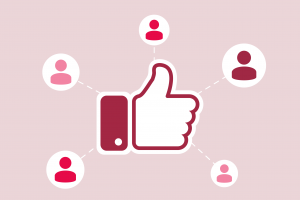 Don’t panic yet! You don’t need to quit social media use completely. A 2019 study analyzed a sample of more than 1,000 American adults. Using social media as part of a daily routine has a positive effect on social well-being, mental health, and self-rated health.
Don’t panic yet! You don’t need to quit social media use completely. A 2019 study analyzed a sample of more than 1,000 American adults. Using social media as part of a daily routine has a positive effect on social well-being, mental health, and self-rated health.
“Routine social media use may compensate for diminishing face-to-face social interactions in people’s busy lives,” said Mesfin Awoke Bekalu, the study’s research scientist, in an interview with Harvard.
Self-regulation is the key to a healthy relationship with social media, he said. It becomes unhealthy when you’re too emotionally connected. This could manifest in regularly checking for updates out of fear that you’ll miss something, or feeling a sharp pang of disappointment when your friends aren’t online at the same time you are.
An earlier 2010 study also suggests that social media can have benefits. Over two years, 740 people were surveyed. Respondents described:
- How they used the Internet
- Their physical health
- Their depression levels
- If they had a serious illness or cared for someone with one
The study found that using the Internet to stay in touch with loved ones was tied to small decreases in depression. This conclusion is backed by other studies that show social support improves well-being and means the Internet may be a good way to strengthen those social networks.
A 2018 study recommends limiting yourself to 30 minutes of social media use a day.
A Successful Social Media Strategy
Harvard Medical School recommends you remain mindful of how you interact with social media, not just how much you use it. Is it a replacement for something you might be able to do in real life? If so, you might want to try a substitute activity such as talking with friends, walking outside, reading a book, or creating artwork.
“It’s fine to do a quick check on what other people are doing, or to keep track of social events to attend,” Jeremy Nobel, MD, writes. “It is less healthy to monitor social media for what we’re missing out on.”
The social media platform you use matters as well. Some, such as Facebook, may leave you unfavorably comparing yourself to others. Others may allow for more creative expression. If you find yourself feeling more lonely as you use social media, reduce the time you spend using it. Remember, you want to develop a sense of community.
How Much Sleep Do I Need?
How much sleep you need depends on your age group. The younger you are, the more you need.
| Age Group | Recommended Amount of Sleep |
|---|---|
| Newborns 0 to 3 months old | 14 to 16 hours |
| Infants 4 to 11 months old | 12 to 15 hours |
| Toddlers 1 to 2 years old | 11 to 14 hours |
| Preschoolers 3 to 5 years old | 10 to 13 hours |
| Children 6 to 13 years old | 9 to 11 hours |
| Teenagers 14 to 17 years old | 8 to 10 hours |
| Adults 18 to 25 years old | 7 to 9 hours |
| Adults 26 to 64 years old | 7 to 9 hours |
| Adults age 65 and older | 7 to 8 hours |
Lifestyle factors can also affect how much sleep you need. Working on your feet all day can cause you to need more sleep than a person with a desk job. Athletes can benefit from sleeping 10 hours a day to recover from their intense physical activity.
Not getting enough sleep affects your daily performance. When you’re sleep-deprived, your physical and mental reactions slow down, reducing your productivity.
Chronic sleep loss is tied to heart disease, obesity, and diabetes. Too little sleep can also compromise your immune system and decrease your chances of resisting infection.
Creating a New Bedtime and Wake-Up Routine
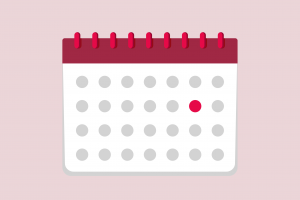 It can be hard to cut down on your social media time before bed, but it’s necessary to minimize blue light exposure so you can get a good night’s rest. Instead, try a bedtime routine without electronics and focus on relaxing. Soothing activities can include reading, knitting, doing some light stretches, and a warm bath.
It can be hard to cut down on your social media time before bed, but it’s necessary to minimize blue light exposure so you can get a good night’s rest. Instead, try a bedtime routine without electronics and focus on relaxing. Soothing activities can include reading, knitting, doing some light stretches, and a warm bath.
If you can, don’t just log off of social media at least an hour or two before bedtime, but keep all electronic devices out of your bedroom. Just having a computer or TV in your room causes your brain to associate it with things other than sleep. For people who need to remain “on-call” and must sleep with a phone in their room, disable all unnecessary notifications.
If you find sleep eluding you for more than 20 or 30 minutes after you lie down on your mattress, it’s important to stifle any urge to reach for an electronic device and check social media. The blue light will only wake you up more instead of relaxing you.
Instead, get out of bed and try a soothing activity. Try making yourself a cup of warm milk or herbal tea. Relax by reading a chapter in a favorite book. When you feel yourself grow sleepy, return to bed.
You should try to fall asleep and wake up around the same time every day because that is the only way to develop a consistent sleep schedule. Yes, that does mean you should try to avoid sleeping in on your days off; we recommend no more than an extra hour of sleep. But if you’re getting enough sleep every night, you shouldn’t need to sleep more on the weekend.
A sign you’re getting a good night’s sleep is if you’re waking up a few minutes before your alarm is set to go off. And when your alarm does go off, don’t just hit the snooze button. This weakens the association in your mind that the alarm means it’s time to get up, which may eventually lead to you sleeping through your wake-up call.
Frequently Asked Questions
What are the effects of using social media?
It depends on how much you use social media and how you connect with it. Limited use of social media to stay in touch with your family and friends can improve your mental state. But obsessively checking for updates, feeling a need to compete with people you follow, and browsing social media late into the evening can have a detrimental effect.
How is sleep linked to learning?
There’s evidence that sleep, learning, and memory are connected, but we still don’t fully understand what ties them together. REM sleep seems to play a role in helping us remember procedural memory, the learned steps that help us accomplish a task such as playing an instrument. REM and deeper slow-wave sleep are believed to help us process and consolidate declarative memory, which is fact-based information such as the various state capitals.
Getting too little sleep can make it difficult to take in new information and recall what we previously learned.
What part of the brain controls sleep?
There’s more than one brain structure linked to sleep:
- A group of nerve cells in the hypothalamus affects sleep and arousal. The brain stem communicates with the hypothalamus to transition the body from wakefulness to sleep.
- The thalamus relays information from your senses. It’s inactive for the most part when you’re asleep, but becomes active during REM sleep to fill out the details of your dreams.
- The pineal gland helps you produce melatonin, a hormone that your brain produces when it gets dark.
- The basal forebrain promotes sleep and wakefulness. It releases adenosine to help you fall asleep; caffeine works by blocking adenosine receptors, preventing you from feeling sleepy.
- The amygdala helps you process emotions. It grows active during REM sleep.
Are 5 hours of sleep enough?
Five hours of sleep are not enough to feel refreshed and recovered the next day. Sleep and performance are interconnected, with most of us responding more slowly if we’ve gotten less than seven hours of sleep. However, it’s always better to get too little sleep than absolutely none.
Is 10 p.m. a good bedtime?
Falling asleep at 10 p.m. can be a good bedtime if it lets you get 7 to 9 hours of sleep. And you want to be asleep and not just in bed at 10, which means getting in bed between 9:30 to 9:45 p.m.
If you want to become a morning person, you may have to resign yourself to a few sleepy mornings. Change is rarely immediate, and you may find it difficult to fall asleep at an earlier time.
Did We Help?
Limited social media use can improve your mental health, allowing you to stay in touch with loved ones when you can’t see them in real life. However, too much can drain you, causing you to feel anxious and depressed during the day and struggle to fall asleep at night. You don’t need to shun social media, but it’s important to use it in moderation.
This article is for informational purposes and should not replace advice from your doctor or other medical professional.
Michelle Zhang, Wellness Writer 
Michelle Zhang is a regular contributor to our Zoma blog and is our go-to sleep researcher. In her time with Zoma, Michelle has researched and published many articles on widespread sleeping habits and troubles. In her time outside of Zoma, Michelle is an occupational therapist and long-distance runner. She believes leading a healthy lifestyle is the key to getting better sleep at night. Michelle's work has been featured on Men's Journal, The Frisky, and The Mighty.
View all posts